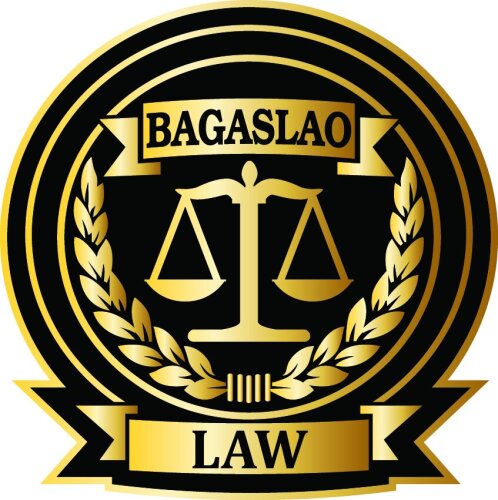Best Elder Abuse Law Lawyers in Whitehorse
Share your needs with us, get contacted by law firms.
Free. Takes 2 min.
List of the best lawyers in Whitehorse, Canada
About Elder Abuse Law in Whitehorse, Canada
Elder abuse law in Whitehorse, Canada, is designed to protect older individuals from a spectrum of abuse forms, including physical, emotional, financial, and neglect. These laws ensure that the rights and well-being of seniors are safeguarded against any form of maltreatment by caregivers, family members, or other individuals. The legal framework combines federal and territorial laws to address various aspects of elder abuse and provide remedies to victims.
Why You May Need a Lawyer
If you or someone you know is experiencing elder abuse, understanding the legal implications and navigating the legal system can be challenging. Common situations that may require the assistance of a lawyer include: pursuing legal action against an abuser, understanding guardianship and financial management rights, seeking protective orders, and recovering financial assets that may have been misappropriated. A lawyer specializing in elder abuse law can provide the expertise necessary to ensure that justice is served and the rights of the elder are protected.
Local Laws Overview
The laws in Whitehorse, Canada, related to elder abuse are shaped by both territorial legislations and principles from the national criminal code. Whitehorse follows the Yukon Adult Protection and Decision-Making Act, which provides mechanisms for reporting abuse and seeking court-appointed guardianship. Mandatory reporting laws in the territory require certain professionals to report suspected abuse. Furthermore, the federal Criminal Code of Canada addresses offenses like assault, theft, and fraud, which can all relate to elder abuse.
Frequently Asked Questions
What constitutes elder abuse?
Elder abuse includes any action or inaction causing harm or distress to an elderly person. This can be physical, emotional, financial, sexual abuse, or neglect.
What should I do if I suspect elder abuse?
If you suspect elder abuse, it is vital to report it to the local authorities or social services. In emergencies, contact the police immediately.
Are there mandatory reporting laws in Whitehorse concerning elder abuse?
Yes, certain professionals are required by law to report suspected elder abuse, including healthcare workers and social service personnel.
What legal actions can be pursued against someone committing elder abuse?
Legal actions may include criminal charges such as assault or theft, civil claims for damages, or the pursuit of protective orders.
How can elder abuse be proven in court?
Proving elder abuse typically requires documented evidence, witness testimonies, expert opinions, and possibly medical evaluations.
What are the penalties for elder abuse in Canada?
Penalties vary depending on the severity and type of abuse but can include fines, restitution, community service, and imprisonment under the Canadian Criminal Code.
Is it necessary to have a lawyer in cases of elder abuse?
While not mandatory, having a lawyer is advisable, as they can help navigate the complex legal system, advise on the best legal strategy, and advocate for the victim's rights.
Can an elder person’s financial assets be protected from abuse?
Yes, legal tools like power of attorney, trusts, and guardianship can help protect financial assets from being misused.
What role does the Adult Protection Unit play in Whitehorse?
The Adult Protection Unit investigates reports of abuse and neglect concerning vulnerable adults, offering support and resources to ensure their safety and well-being.
Where can I find support services for elder abuse victims?
Support services are available through local health and social services, elder abuse helplines, and legal aid centers like the Yukon Legal Services Society.
Additional Resources
For individuals seeking further assistance, the following resources may be useful: Yukon Health and Social Services - Adult Protection Unit, Yukon Seniors' Services, Public Guardian and Trustee of Yukon, and the Canadian Network for the Prevention of Elder Abuse. These organizations offer a range of support services, guidance, and information to those impacted by elder abuse.
Next Steps
If you believe you or someone you know requires legal assistance concerning elder abuse, it’s important to first document any evidence of abuse or neglect. Contact local authorities or specialized agencies to report suspected abuse promptly. Consulting with a lawyer experienced in elder abuse law is essential to understand your legal options and take appropriate action. Finally, continue to engage with local support services to ensure ongoing protection and well-being.
Lawzana helps you find the best lawyers and law firms in Whitehorse through a curated and pre-screened list of qualified legal professionals. Our platform offers rankings and detailed profiles of attorneys and law firms, allowing you to compare based on practice areas, including Elder Abuse Law, experience, and client feedback.
Each profile includes a description of the firm's areas of practice, client reviews, team members and partners, year of establishment, spoken languages, office locations, contact information, social media presence, and any published articles or resources. Most firms on our platform speak English and are experienced in both local and international legal matters.
Get a quote from top-rated law firms in Whitehorse, Canada — quickly, securely, and without unnecessary hassle.
Disclaimer:
The information provided on this page is for general informational purposes only and does not constitute legal advice. While we strive to ensure the accuracy and relevance of the content, legal information may change over time, and interpretations of the law can vary. You should always consult with a qualified legal professional for advice specific to your situation.
We disclaim all liability for actions taken or not taken based on the content of this page. If you believe any information is incorrect or outdated, please contact us, and we will review and update it where appropriate.








